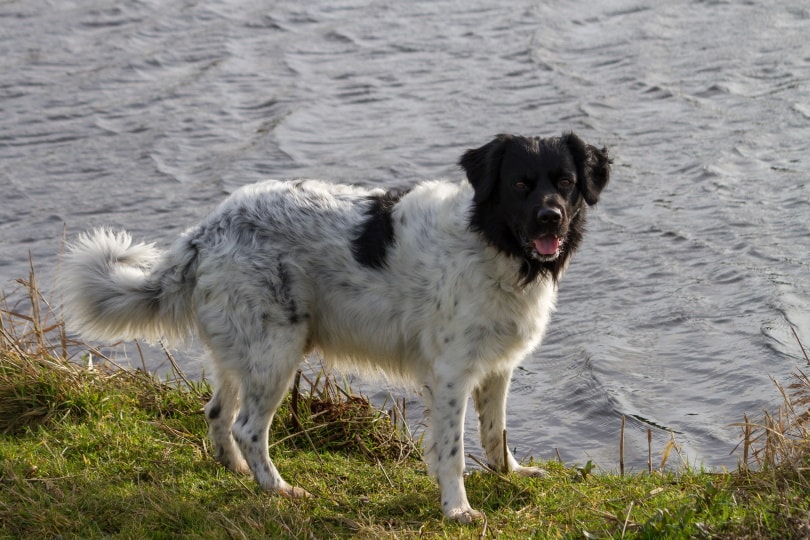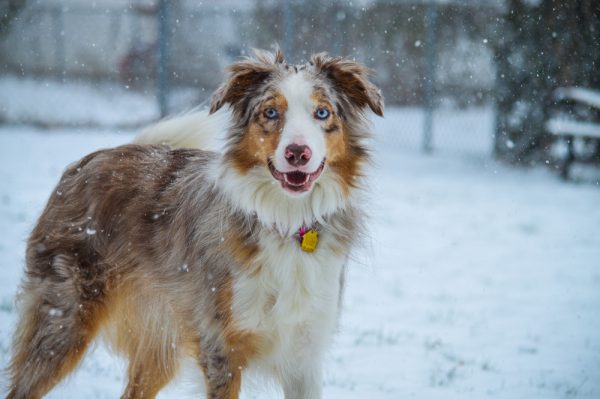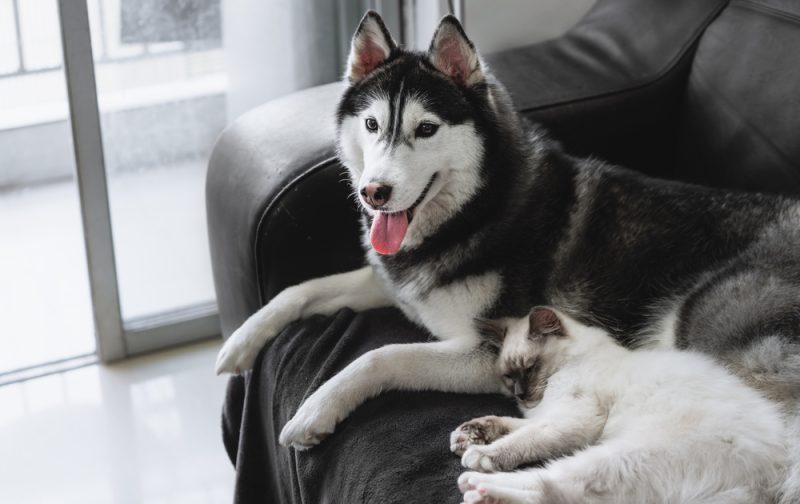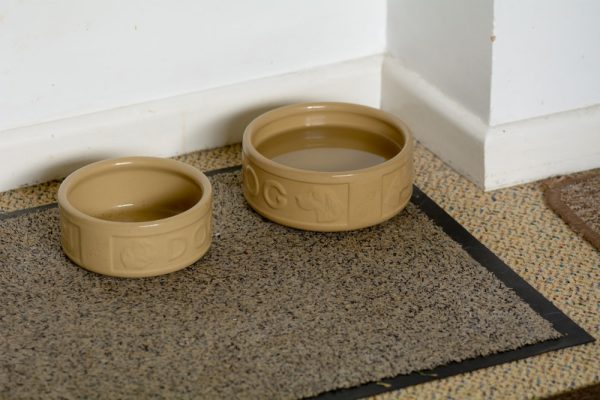In this article
View 8 More +Also known as the Wetterhoun, Otterhoun, and Dutch Spaniel, the Frisian Water Dog is a medium-sized dog with a coarse, curly coat and loads of personality. Believed to be descended from the Old Water Dog, a now-extinct breed that was used by gypsies, the Frisian Water Dog was originally developed in the Netherlands to hunt and retrieve otter. This breed is also referred to as Wetterhun, which translates to “water dog.”
Breed Overview
Height
21-23 inches
Weight
30-45 pounds
Lifespan
10-15 years
Colors
Black, Liver, White and liver, White and black
Suitable for
Active families with or without older children, Couples, Experienced owners
Temperament
Loyal & Loving, Intelligent, Athletic, Friendly, Easy to train
If you want to add a versatile, athletic, and unique dog to your household, consider the Frisian Water Dog! Let’s take a deep dive into everything you need to know about caring for the wonderful water dog.
Frisian Water Dog Characteristics

Frisian Water Dog Puppies
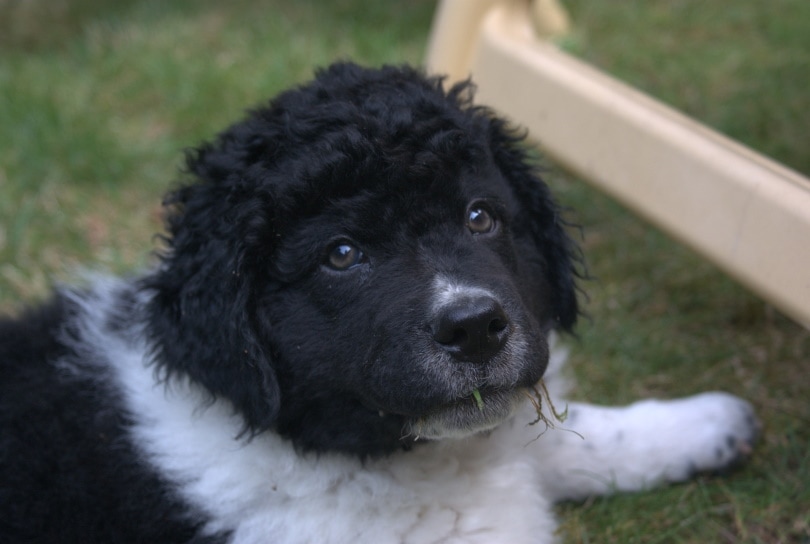
The Frisian Water Dog is not currently recognized by the American Kennel Club (AKC). However, this breed is recognized by the UKC, FCI, and the Netherlands Kennel Club. Nearly reaching extinction following World War II, the Frisian Water Dog slowly made a comeback thanks to breed enthusiasts and breeders. Though still rare and even unknown outside of its homeland of the Netherlands, the Frisian Water Dog still makes an amazing canine companion.

Temperament & Intelligence of the Frisian Water Dog
The Frisian Water Dog is not ideal for inexperienced dog owners. While extremely loving and affectionate, this breed can be somewhat independent-minded and aloof. It’s critical to establish yourself as “top dog” from day one.
Are These Dogs Good for Families?
While a great canine companion, the Frisian Water Dog does best in homes with older children. A friendly and playful breed, the Frisian Water Dog has been known to have a short fuse. If young tots tug on his ear or steal his toy, the Frisian Water Dog will be quick to growl. It’s always important to teach your kids boundaries when it comes to interacting with any dog. Never let them rough house with a dog, bother him when he’s eating, or pull on his ears and tail. Moreover, keep a watchful eye on them when they’re interacting with your pooch.
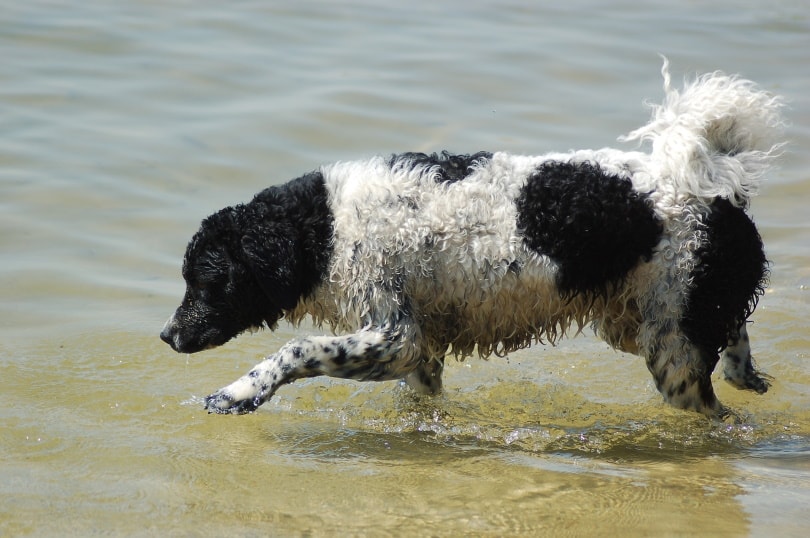
Does This Breed Get Along with Other Pets?
If socialized from the start, the Frisian Water Dog will get along nicely with other dogs. Since he has a strong prey drive to hunt down smaller animals, this dog would not do well in households with smaller pets, including cats and rabbits.

Things to Know When Owning a Frisian Water Dog:
So, you want to buy a Frisian Water Dog? Here’s everything you need to know about caring for this special dog, including his diet, training, exercise, and grooming requirements.
Food & Diet Requirements
The Frisian Water Dog is a medium-sized dog with tons of energy. As such, he’ll need to be fed high-quality kibble that caters to his size and activity levels. Feed your pet about two to three and a half cups of kibble per day, divided into two meals.
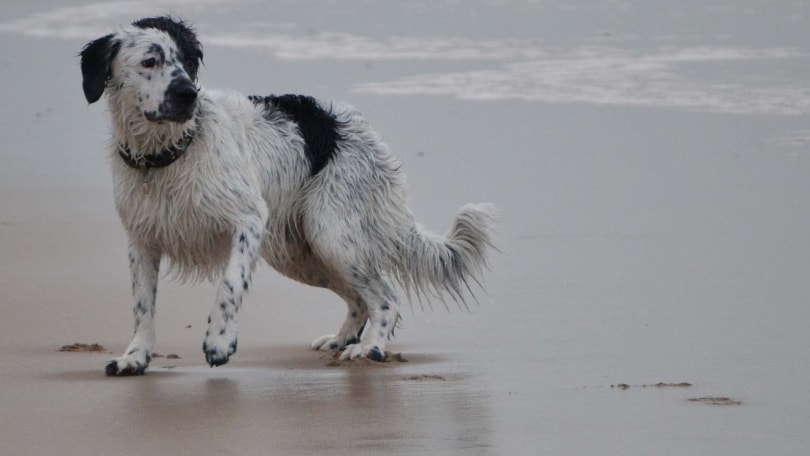
Exercise
As we said before, the Frisian Water Dog is an animated dog with energy to spare. This breed does not do well in apartments. He’ll need plenty of room, both inside and out, to explore and play. A house with a big, fenced-in backyard is perfect for this breed. Aim to provide your Frisian Water Dog with about an hour to two hours of vigorous exercise every day. This can be broken down into short sessions, such as jogs around the neighborhood, a game of fetch in the backyard, or an agility class.
Without sufficient amounts of physical and mental engagement, the Frisian Water Dog can become bored and restless. Boredom can make this breed resort to bad behavior, such as chewing.
Training
Although an intelligent breed, the Frisian Water Dog can be tough to train. This is because this dog can be strong-willed, independent, and sensitive. To properly train a Frisian Water Dog, you need to be patient and consistent. Firm, positive reinforcement training works best for this breed. Never scold, hit, or yell at your dog. Be sure to give him plenty of praise and high-value treats when he does what you ask.
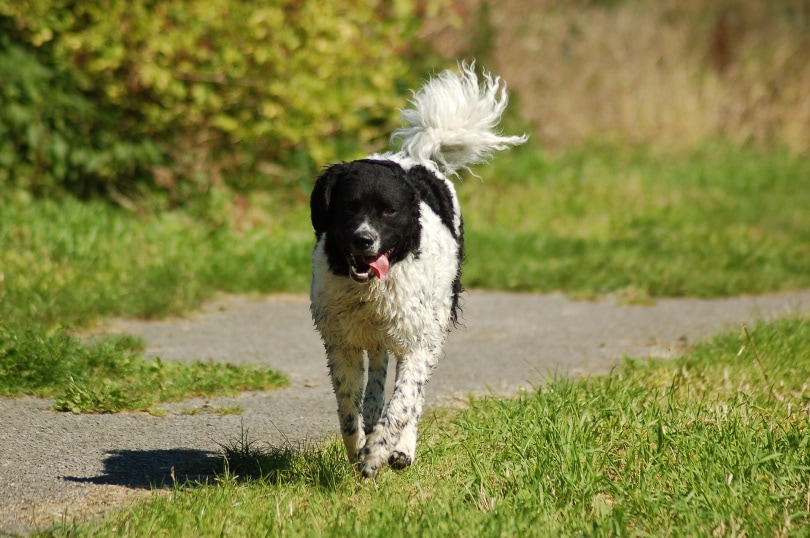
Grooming ✂️
The Frisian Water Dog isn’t too high maintenance when it comes to his grooming needs. Brush him thoroughly about twice per week. This dog doesn’t require regular bathing because of his waterproof coat’s natural oils. Brush his teeth daily and trim his nails as needed.
Health and Conditions
- Ear infections
- Eye issues
- SCID
- Joint dysplasia
- Patellar luxation
Though a hardy breed that can live up to 15 years, the Frisian Water Dog is prone to certain health problems including joint dysplasia and SCID. Annual vet visits are essential to identify potential health concerns before they can develop into serious problems.
Male vs Female
Male Frisian Water Dogs will be larger than females by several pounds and inches. Both genders have similar personality traits.

3 Little-Known Facts About the Frisian Water Dog
1. They Almost Became Extinct
After World War II, the number of Frisian Water Dogs was dwindling. In fact, the breed almost reached extinction. Though still rare, there is now a healthy number of Frisian Water Dogs available throughout the world.
2. They’re Great Swimmers
As his namesake suggestions, the Frisian Water Dog is a great swimmer. Originally developed to help fishermen hunt otters, the Frisian Water Dog excels at aquatic sports.
3. They’re Active
The Frisian Water Dog needs tons of vigorous exercise and does not do well in apartment settings. This breed is best suited for homes with large backyards where he can run, romp, and play.

Final Thoughts
If you’re looking for a unique, sporty breed that can keep up with you on your jogs or hikes, the Frisian Water Dog could be the perfect pup for you. Extremely active and affectionate, the Frisian Water Dog is best suited for experienced owners with older or no children. Though it takes patience and consistency to properly train a Frisian Water Dog, this dog will provide you with lots of love and loyalty for their entire lifespan.
Related Reads and Breeds:
- Barbet: Breed Guide, Info, Pictures, Care & More!
- Portuguese Water Dog: Breed Guide, Info, Pictures, Care & More!
Featured Image Credit: Max Jongkoen, Shutterstock
